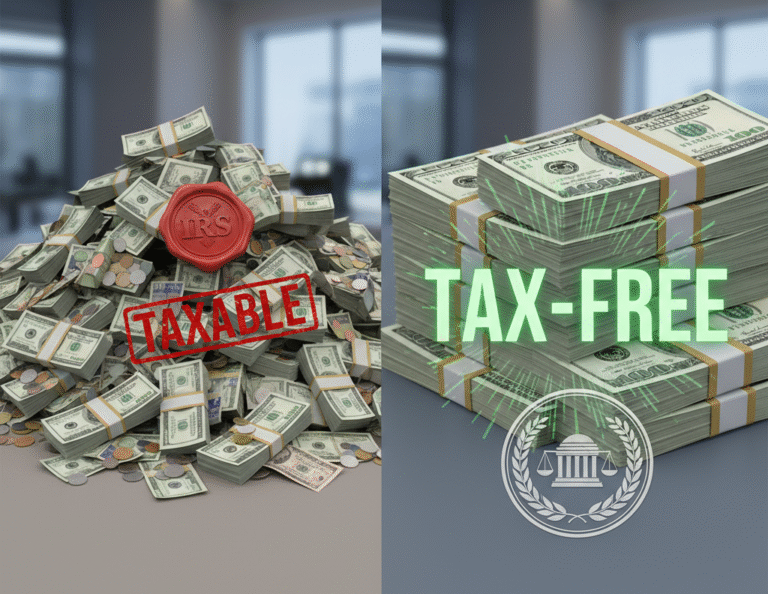Structured settlements provide a reliable financial safety net for individuals who receive compensation from lawsuits. While these payments often come with tax advantages, the Internal Revenue Service (IRS) has specific rules governing how settlements are treated. Failing to understand these regulations can lead to unexpected tax bills, penalties, or even loss of eligibility for certain benefits.

This guide explains the most important IRS rules for structured settlements, how they apply in 2025, and what every recipient or seller needs to know.
Why IRS Rules Matter
- They determine whether settlement payments are tax-free or taxable.
- They define which parts of the settlement (compensatory vs. punitive) are exempt.
- They impact decisions about selling structured settlements to third-party companies.
IRS Classification of Structured Settlements
- Tax-Free Payments
- Awards from personal injury or wrongful death lawsuits are typically not taxable.
- Payments made through annuities remain tax-exempt as long as they are compensatory.
- Taxable Payments
- Punitive damages (meant to punish defendants) are taxable.
- Interest or investment gains built into settlements are taxable.
- Selling a structured settlement may generate capital gains tax depending on the transaction.
IRS Guidance on Selling Structured Settlements
When someone sells their settlement:
- The IRS examines whether the payment is treated as income.
- Some sales may trigger capital gains tax.
- Professional tax advice is recommended before closing the deal.
IRS and Annuities
The annuities funding structured settlements are subject to strict IRS rules. They must:
- Be purchased directly by the defendant’s insurer.
- Remain irrevocable (the recipient cannot modify terms without approval).
- Be distributed according to the original settlement contract.
Understanding IRS rules for structured settlements ensures that recipients make informed decisions while avoiding penalties. Whether keeping payments or selling them, always review IRS guidance and consult tax experts.




